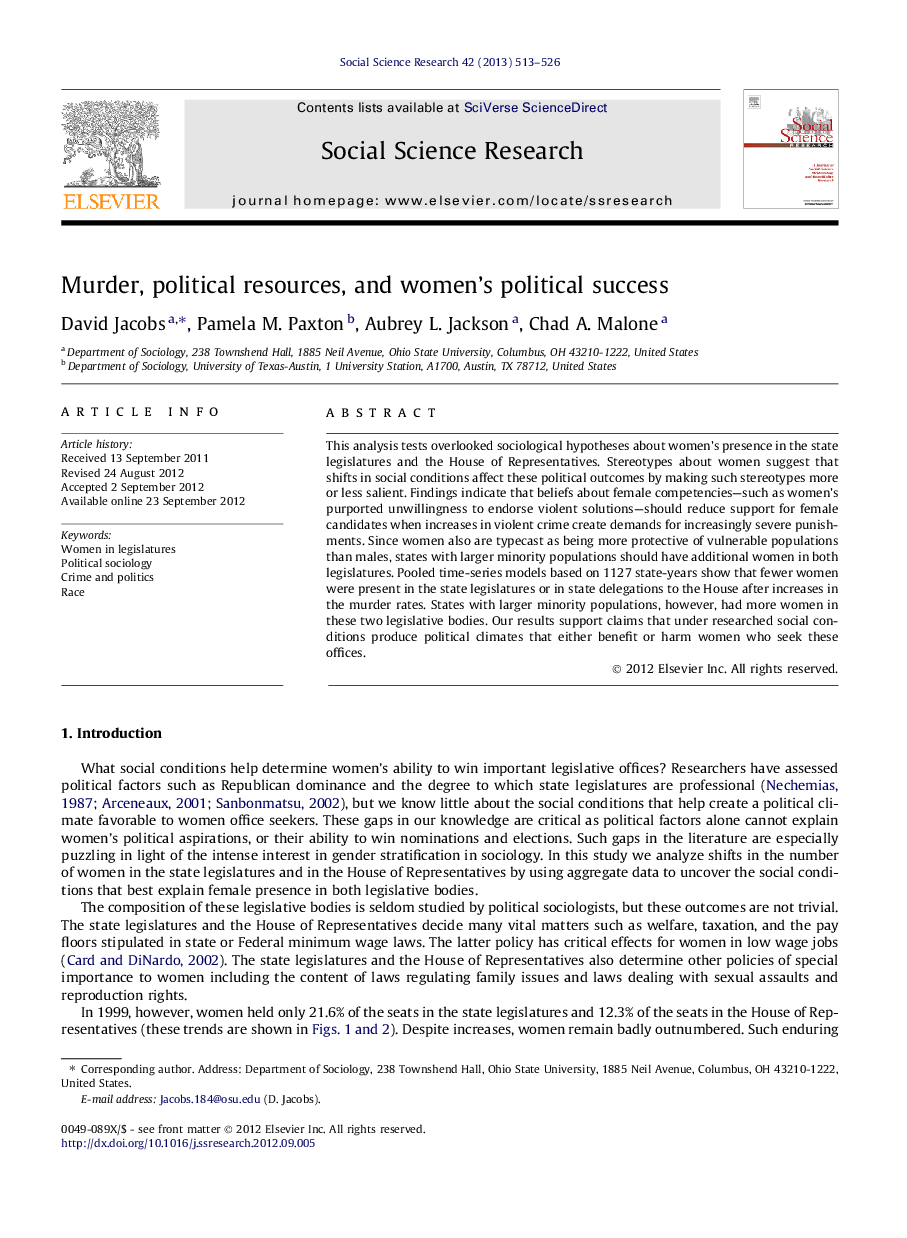| Article ID | Journal | Published Year | Pages | File Type |
|---|---|---|---|---|
| 955910 | Social Science Research | 2013 | 14 Pages |
This analysis tests overlooked sociological hypotheses about women’s presence in the state legislatures and the House of Representatives. Stereotypes about women suggest that shifts in social conditions affect these political outcomes by making such stereotypes more or less salient. Findings indicate that beliefs about female competencies—such as women’s purported unwillingness to endorse violent solutions—should reduce support for female candidates when increases in violent crime create demands for increasingly severe punishments. Since women also are typecast as being more protective of vulnerable populations than males, states with larger minority populations should have additional women in both legislatures. Pooled time-series models based on 1127 state-years show that fewer women were present in the state legislatures or in state delegations to the House after increases in the murder rates. States with larger minority populations, however, had more women in these two legislative bodies. Our results support claims that under researched social conditions produce political climates that either benefit or harm women who seek these offices.
► We explain numbers of women in state legislatures. ► We explain numbers of women in state delegations to the House of Representatives. ► Findings show women do worse when murder rates are higher. ► Findings show women do better in states with more minorities.
